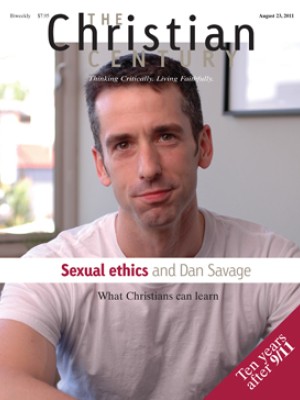Liberal theologian, mentor Gordon Kaufman dies at 86
A member of the Harvard Divinity School faculty for more than three decades, Gordon Kaufman, who died July 22 at 86, had a profound influence on rethinking theology in naturalistic terms, arguing for a vision of God as the "profound mystery of creativity," according to his colleagues. He died at his home in Cambridge, Massachusetts.
A prolific author and essayist, Kaufman was admired especially for his 1993 book In Face of Mystery: A Constructive Theology. In a review for the Century, William C. Placher called it "his best book, tying together a lifetime of theological reflection. . . . An admirable model of how to be a theologian."
Read our latest issue or browse back issues.
Another reviewer, Alan Race, in the Times Literary Supplement, noted Kaufman's "refreshing candor" in confronting traditional systematic thinking. Kaufman's invitation to build a theology from many voices and perspectives "rescues the theological task from the defensive postures it has adopted ever since the rise of the critical method."
Kaufman was president of the American Theological Society for one year before holding the same post for the large American Academy of Religion 1981-1982.
"At the core of Gordon's theological imagination of God as mystery and creativity was his deep commitment to nonviolence, justice and human flourishing," said Karen King, Hollis Professor of Divinity at Harvard Divinity School, who also recalled "his fundamental sense of joy and duty in connection to all living things."
George Rupp, a former dean at Harvard and ex-president of Columbia University, called Kaufman "an exceptional teacher, mentor, colleague and friend." Kaufman retired in 1995 but taught part-time and mentored students up to 2009.
A Mennonite who was a conscientious objector during World War II, Kaufman earned his undergraduate degree at Bethel (Kansas) College in 1947, then went on to Northwestern and Yale for graduate degrees. In 1953 he was ordained in the General Conference Mennonite Church.
Before joining the Harvard faculty, Kaufman taught at Pomona College, then at Vanderbilt University. He held numerous postdoctoral fellowships and visiting professorships abroad.
Feminist pioneer Francis Schüssler Fiorenza said Kaufman insisted that "Christian beliefs should be understood in ways that contribute to global issues of peace, to dialogue among
the religions, and to environmental concerns."
Among his early books were God the Problem (1972) and Nonresistance and Responsibility, and Other Mennonite Essays (1979). His latest were In the Beginning . . . Creativity (2004) and Jesus and Creativity (2006) in which he suggested—according to a Harvard Divinity School news release—that God is the "profound mystery of creativity," the "ongoing creativity in the universe."






